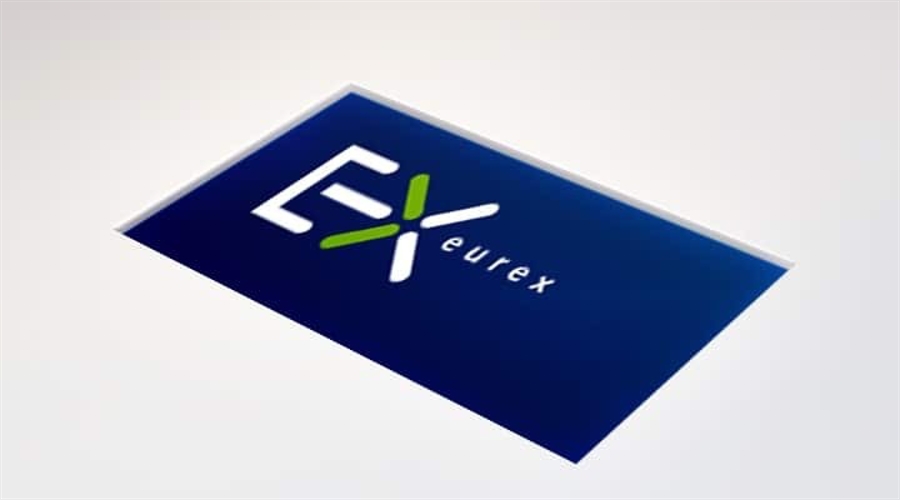Eurex has announced it will launch futures on EU bonds
starting in September. The new instrument aims to give traders a way to hedge
exposure or gain market access and comes at a time when interest in futures is
rising, especially among prop trading companies.
Futures to Strengthen EU Debt Market
The Euro-EU Bond Futures (FBEU) contract will be
physically deliverable and complement existing trading in EU bonds across cash
and repo markets.
“The launch of the Euro-EU Bond Futures is more than
just a new product for Eurex,” said Matthias Graulich, Global Head of Products &
Markets at Eurex. “It is a strategic commitment to supporting European ambitions
for greater autonomy at a time when the continent is relying on additional debt
issuance and investors are seeking tailored tools to manage their exposure to
EU debt.”
Eurex said the product will help improve liquidity and
align the EU more closely with major sovereign issuers like Germany, France,
and the US—markets where futures already play a key role in bond pricing and
risk management.
The launch follows close cooperation with the European
Commission and market participants. The EU, now among the largest borrowers
globally with over €600 billion in outstanding debt, has reportedly seen its
bonds reach liquidity levels comparable to national governments.
Risk Tools for a Growing Debt Market
According to the announcement, the new contract will
cover EU bonds maturing between 8 and 12 years and offer a fixed 6% coupon,
mirroring Eurex’s other 10-year sovereign bond futures.
Eurex’s initiative also follows a similar step by ICE,
which launched futures on an EU bond index in late 2024. However, Eurex’s
product will be unique in its physical delivery and integration into
established fixed income markets.
Sean Kozak, the CEO of the Canadian based prop firm Tickblaze,
recently shed light on the reasons prop trading companies are now opting for
regulated futures.
In a post on LinkedIn Kozak listed some of the reasons,
among them: capital efficiency, execution quality, volatility edge, regulatory environment,
and trader talent.
“When markets are super volatile, prop firms can’t
afford to experience slippage or latency, which is common for retail platforms.
But futures markets offer institutional-grade infrastructure that those
platforms simply can’t match,” he said.
“Some of the benefits of futures are direct exchange
access and low-latency routing, transparent order books with real-time depth,
and consistent fill logic during high-volume times.”
Eurex has announced it will launch futures on EU bonds
starting in September. The new instrument aims to give traders a way to hedge
exposure or gain market access and comes at a time when interest in futures is
rising, especially among prop trading companies.
Futures to Strengthen EU Debt Market
The Euro-EU Bond Futures (FBEU) contract will be
physically deliverable and complement existing trading in EU bonds across cash
and repo markets.
“The launch of the Euro-EU Bond Futures is more than
just a new product for Eurex,” said Matthias Graulich, Global Head of Products &
Markets at Eurex. “It is a strategic commitment to supporting European ambitions
for greater autonomy at a time when the continent is relying on additional debt
issuance and investors are seeking tailored tools to manage their exposure to
EU debt.”
Eurex said the product will help improve liquidity and
align the EU more closely with major sovereign issuers like Germany, France,
and the US—markets where futures already play a key role in bond pricing and
risk management.
The launch follows close cooperation with the European
Commission and market participants. The EU, now among the largest borrowers
globally with over €600 billion in outstanding debt, has reportedly seen its
bonds reach liquidity levels comparable to national governments.
Risk Tools for a Growing Debt Market
According to the announcement, the new contract will
cover EU bonds maturing between 8 and 12 years and offer a fixed 6% coupon,
mirroring Eurex’s other 10-year sovereign bond futures.
Eurex’s initiative also follows a similar step by ICE,
which launched futures on an EU bond index in late 2024. However, Eurex’s
product will be unique in its physical delivery and integration into
established fixed income markets.
Sean Kozak, the CEO of the Canadian based prop firm Tickblaze,
recently shed light on the reasons prop trading companies are now opting for
regulated futures.
In a post on LinkedIn Kozak listed some of the reasons,
among them: capital efficiency, execution quality, volatility edge, regulatory environment,
and trader talent.
“When markets are super volatile, prop firms can’t
afford to experience slippage or latency, which is common for retail platforms.
But futures markets offer institutional-grade infrastructure that those
platforms simply can’t match,” he said.
“Some of the benefits of futures are direct exchange
access and low-latency routing, transparent order books with real-time depth,
and consistent fill logic during high-volume times.”


